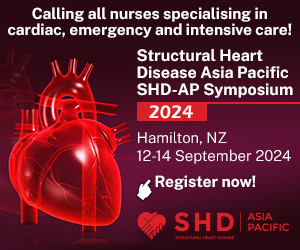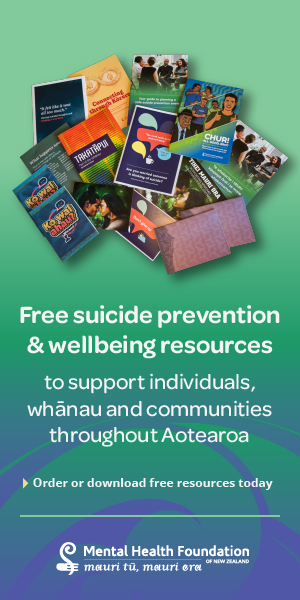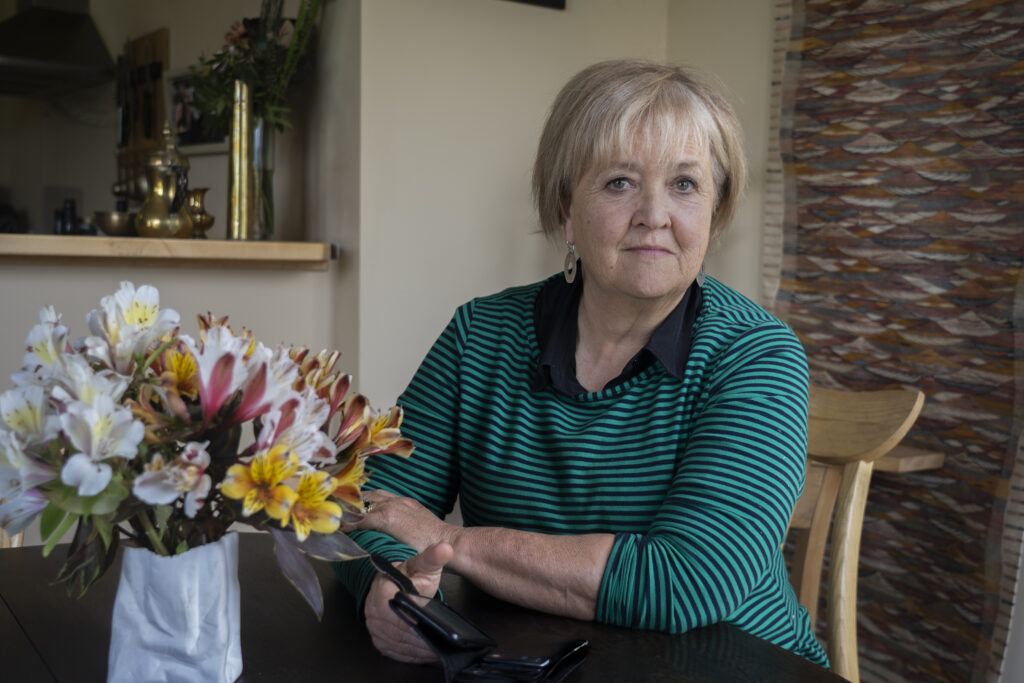
Nurses too fearful, says Carryer
After three decades of nurse leadership and fearless speaking out, outgoing College of Nurses executive director Jenny Carryer confesses she is “disappointed” by the lack of progress.
“I just wish nurses would be braver. Particularly in a time when there is a desperate and ever-escalating shortage of nurses, why are they not using that power to require
things to be the way they need them to be? And I don’t mean strike action and placards in the street – I mean quiet, powerful assumption of our importance.”
Carryer – a founder of the college in 1992 – said its core “passion” was to grow the confidence of nurses to take up leadership roles. But this had proved a “huge challenge” over the years.
“You might ask why nurses are so scared and what are they scared of? Is it imaginary or is it real? I think it’s a little bit of both. I think nurses are far more fearful than they need to be. But I also think that many employers, managers and organisers of services do act very repressively towards nurses,” she says.
“I think because of the very gendered nature of nursing and volume and size of nursing services, they possibly bear the brunt of that silencing.”
The college was founded in 1992 – somewhat controversially for some NZNO supporters who feared it would split nurses across two organisations.
But it went ahead, staking itself to the belief a more”confident and competent” nursing workforce would lead to better, more equitable health outcomes, Carryer said.
Carryer says college membership was “quite different” from NZNO’s, tending to be rural, practice and aged-care nurses along with nurse leaders, educators, business owners and nurse practitioners (NPs), rather than hospital nurses. There was “no sense of competition at all” with NZNO, she said. The college’s membership was “into the thousands, but much much smaller than NZNO”.
“Clearly the college has always been very concerned about the lack of engagement with nursing around decision-making, right across the political spectrum, the policy table. Our passion has always been to grow the courage and capacity of nurses to be out there, doing it.”
Carryer has led by example. She is a professor of nursing at Massey University, has co-chaired the National Nursing Organisations leadership group and served on several Ministry of Health (MoH) advisory groups – constantly challenging health leaders to bring nurses into decision-making.
“l always hoped that rolemodelling, it would create change. Probably if I’m strictly honest, I’m disappointed that we haven’t come further. And I think the stress in health services at the moment is so huge that people are too exhausted to take that step.”
There had been some wins – demand for nurse practitioner (NPs) was growing along with the NP and prescriber numbers, now at 650. “It’s a major gain, I think we’re over the hump with that one.”
The voice of nursing within the MoH was also “vastly better than it used to be”, with an active and powerful chief nurse’s office.
But, “I still think that bureaucracy looks to medicine first for leadership. And I think that’s a big mistake because medicine is a very small part of health service delivery.”
Nursing’s more “holistic” approach had huge power to improve people’s health. “Eighty per cent of health outcomes depend on health literacy, the socio-economic determinants of health, the care they receive in the community, access to good nutrition – all those things are nursing, not medicine.”
True nursing leadership and power would see nurses with their own budgets and direct accountability, “rather than advisory roles”, as had too often been the case since the 1990s’ “managerial” health model.
Nurses must be “doggedly and powerfully persistant” about what needs to change.
But the most important thing for nurses, she says is to “nurture, support and trust” nurse leaders. “The really strong message I’ve always tried to give and would like to leave is that we have to learn to support our own leaders. Not to criticise and undermine them … but to nurture them, to catch them when they fall. We are so easily divided and conquered.”
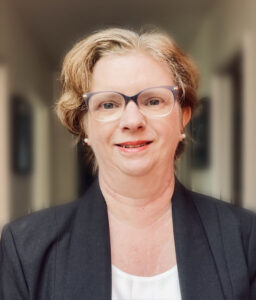
The day Kate Weston became associate professional services manager was the same day Aotearoa went into lockdown at the beginning of the pandemic in 2020.
“My entire time as associate then [acting] professional services manager was through a pandemic response, so those were challenging times,” says Weston.
“At the beginning, there were no vaccinations, there wasn’t enough PPE [personal protective equipment] and the early days were incredibly challenging. I had never worked so long in my life – those first few weeks … I was working 12-plus hour days every day and through the weekend just to try and make sure that the health staff were safe.”
“I wasn’t arguing to be a nuisance, I was arguing for what was right. And we got what was right!”
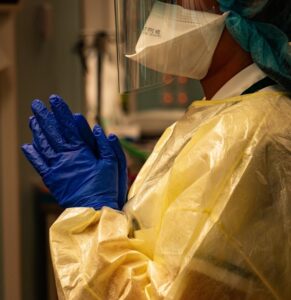
NZNO succeeded – in April, after a weekend of intense negotiations, the Ministry of Health agreed to release more PPE to frontline workers – but Weston says it was “frustrating” to fight so hard to be heard. “Eventually we did win, but we shouldn’t have had to argue so hard.”
This tenacity paid off – for workers and for Weston herself. “It actually did build my confidence as a leader and has built me to make me confident to make me stand for what was right, regardless – I was not going to be talked down. And I think through that, that gets quite a lot of respect, from employers … I wasn’t arguing to be a nuisance, I was arguing for what was right. And we got what was right.”
Life-preserving services
Another “huge” challenge was negotiating life-preserving services (LPS) with district health boards (DHBs) during the June 2021 strike – “probably the most challenging thing ever … to the extent that we had to go to court to win”.
DHBs were insisting NZNO had to force enough members to work to provide LPS during the strike, rather than make “reasonable efforts”. Again, NZNO’s refusal to back down for members meant it went to the Employment Relations Authority (ERA) – which ruled in NZNO’s favour.
“It’s a once-in-a-lifetime opportunity to be a national nursing leader, as a nurse and as a woman,”
There have been “awesome” highlights too, including the Council of International Neonatal Nurses (COINN) international conference in 2019, with nurses attending from across the Pacific region. It showed how they are absolutely there for women, whānau, babies – but also how world-leading neonatal care is in Aotearoa. The things that are being done here for the care of newborns, we are really right up there.”
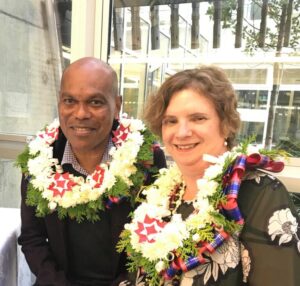
Says Weston her time at NZNO has been “amazing – I really really love the contact with members, especially through the colleges and sections”.
She “cherishes” NZNO’s professional nursing advisors – “an amazing group of nurse leaders in their own right. And my organising colleagues, always doing their utmost for nurses and health-care workers”.
She has supported NZNO sections to attain college status – including the College of Child and Youth Nurses, Women’s Health College and the College of Air and Surface Transport Nurses (COASTN) – and says she has seen members’ leadership and professionalism grow.
“I’ve seen them go from butchers’ paper handouts to really high-quality Powerpoints and then latterly moving into really high quality digital presentations as well, so they’ve moved with the times.”
New role
Weston’s tenacity will be helpful – she is taking on her new leadership role at a time of “unprecedented pressure” on nurses.
‘…we’re getting into a deepening crisis which is taking nurses to the edge of safe practice daily.’
“Now more than ever we need a strong professional voice for nurses, because we’ve got health reforms the likes of which we’ve not seen since the 1990s, and we’re seeing reform of nursing education with changes to the national curriculum and Te Pukenga.
“S0 there’s a huge amount going on there and we’re still recovering from the pandemic – we’re not there yet. And we’re getting into a deepening crisis which is taking nurses to the edge of safe practice daily.”
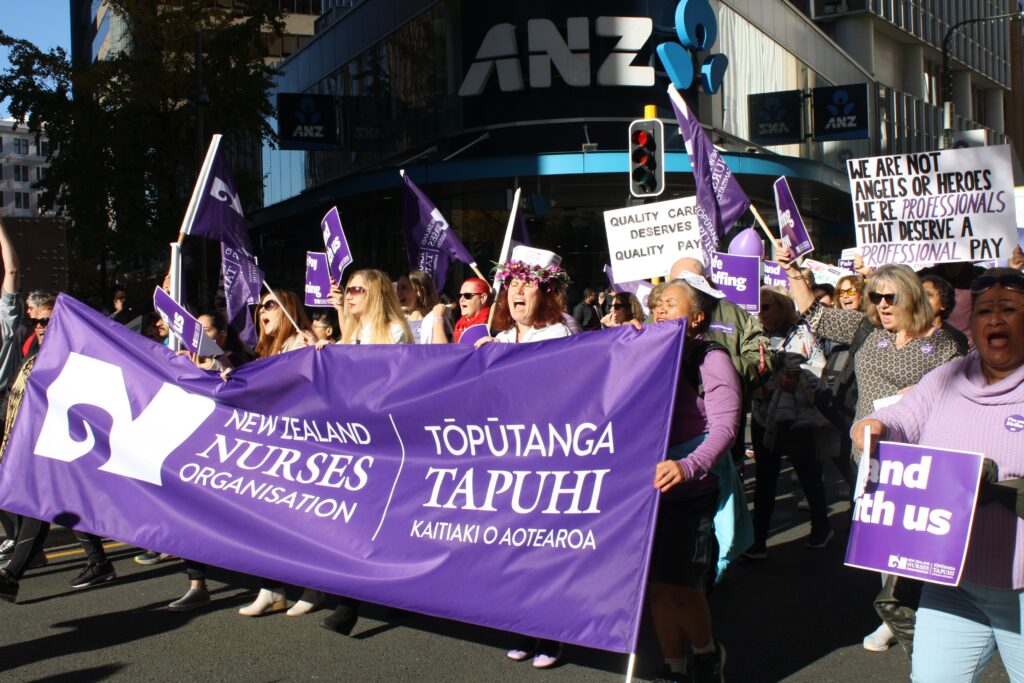
Weston is taking over the helm at the College of Nurses Aotearoa from Massey University nursing professor Jenny Carryer, who has been in the role for 30 years. For Weston, who earlier this year moved from Auckland to Palmerston North to be closer to whānau, it was “serendipitous” timing in what she says has been a year of “huge change”.
“It’s a once-in-a-lifetime opportunity to be a national nursing leader, as a nurse and as a woman,” says Weston, who says she will continue to provide a “really strong professional voice” for nurses and advocate for policy in favour of nurses.
“It ‘s seriously adversarial out there and our members are being pushed to the limits of safe practice every single day and there’s no respite. The pandemic was awful but it was really bad before that.”
Fewer constraints on nurses and nurse practitioners (NPs) and more “genuine” nurse leadership roles – with a budget – were needed. “The main problem we’ve got with nurse leaders is they’re often in an advisory capacity, which is a challenge unless you’ve got the budget to go with it,” she says.
“It’s about being respected and having the power to make that change.”
After 15 years, she says it was hard to leave her NZNO colleagues, particularly the professional nursing advisors – but hoped there would be collaboration “on the big issues” between the two nursing organisations in future.
“It’s a lot of loss in one hit, but also some incredible gains – to be closer to my grandchildren and family.”


